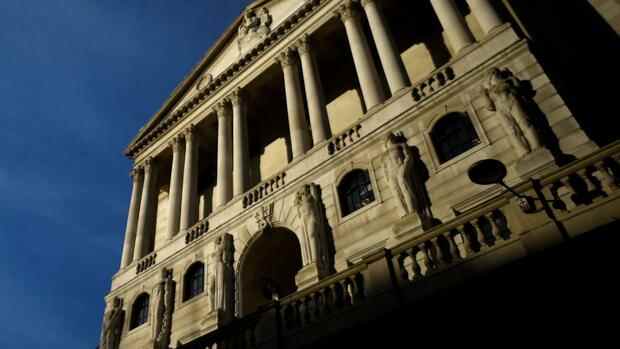The central bank had raised interest rates to counteract the upward trend in prices.
(Photo: Reuters)
London Inflationary pressures in the UK surprisingly eased in August. Consumer prices rose by only 9.9 percent compared to the same month last year, as the statistics office ONS announced on Wednesday in London.
In July, the inflation rate reached 10.1 percent, a 40-year high. Economists polled by Reuters had expected a further increase to 10.2 percent. Petrol and diesel have not been so expensive recently, the statisticians explained the unexpected decline.
The data takes some pressure off the Bank of England, which is struggling with the highest inflation of any major developed country. The central bank kept raising interest rates in order to counter the rise in prices.
Due to the mourning period following the death of Queen Elizabeth II, the interest rate meeting was postponed from Thursday to September 22nd. Many experts believe that a 0.5 percentage point increase in the key interest rate is likely. It is currently 1.75 percent.
Top jobs of the day
Find the best jobs now and
be notified by email.
New Prime Minister Liz Truss recently unveiled a multi-billion dollar plan to deal with the energy crisis. The government expects that this will noticeably lower inflation. This should also take some of the pressure off the Bank of England of having to raise interest rates unusually sharply. Higher interest rates make loans for investments and consumption more expensive, which can have an impact on economic growth.
In view of the sharp rise in energy costs, the British economy hardly grew at all in July. The gross domestic product (GDP) increased by only 0.2 percent compared to the previous month. Economists polled by Reuters had expected growth to be twice as strong.
According to experts, the minus of 3.4 percent in energy production in particular suggests that customers may have reduced their electricity consumption because of the galloping prices.
More: Why inflation in the US and Europe has different causes
